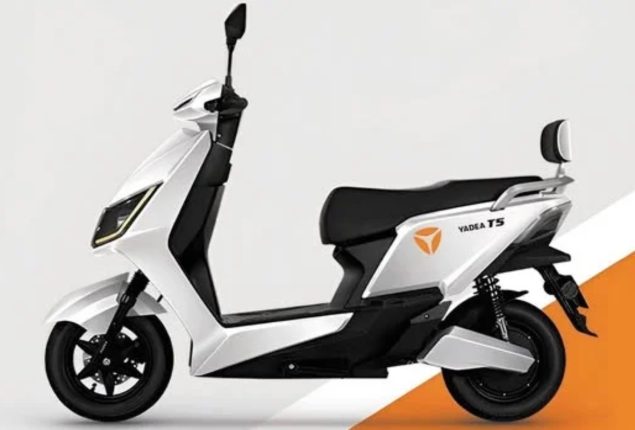

Upgraded Yadea T5 Electric Scooter Launched in Pakistan
Yadea has introduced an improved version of its T5 electric scooter in Pakistan, with better performance and everyday usability. The new model features a stronger motor, improved braking, and more comfortable riding, making it a good alternative to regular 125cc petrol bikes for city travel.
Enhanced Motor Performance
The biggest upgrade in the new Yadea T5 is its 1200W-rated motor, which delivers a peak output of 2100W. The scooter supports a top speed of 57 km/h and features ECO and Sports riding modes for flexible energy use.
Design and Features
The scooter keeps its practical design with a low seat height of 700 mm and a wide 360 mm footboard. It also includes a 26-liter storage space under the seat.
Matrix LED headlights help improve night-time visibility, and the digital dashboard clearly shows speed and battery levels. The scooter also comes with features like remote start, an anti-theft alarm, and hazard lights.
Also Read
Lower Running Cost
The T5 scooter runs on a 72V 25Ah graphene battery made up of six 12V cells and uses about 2 units of electricity for a full charge. It costs around Rs. 1 per kilometer to operate, making it much cheaper than petrol bikes, which cost around Rs. 8 per kilometer with current fuel prices.
Over time, Yadea believes that the money saved on fuel and maintenance can help recover the full cost of buying the scooter.
Specifications: Yadea T5 (2025 Model)
Battery: 72V 25Ah Graphene
Range: 70–85 km (Mode 1)
Rated Power: 1200W
Peak Power: 2100W
Top Speed: 57 km/h
Charging Requirement: 2 electricity units per charge
Warranty: 24 months or 20,000 km
Seat Height: 700 mm
Under-Seat Storage: 26 liters
Footboard Width: 360 mm
Brakes: Front Disc, Rear Drum
Tires: Front & Rear 3.00-10 tubeless
Suspension: Hydraulic shock absorption
Also Read
The new Yadea T5 is available across Pakistan for approximately Rs. 248,500. Its updated motor and added features aim to support the country’s shift toward affordable electric mobility, particularly as government incentives continue to encourage petrol-to-electric conversions.












